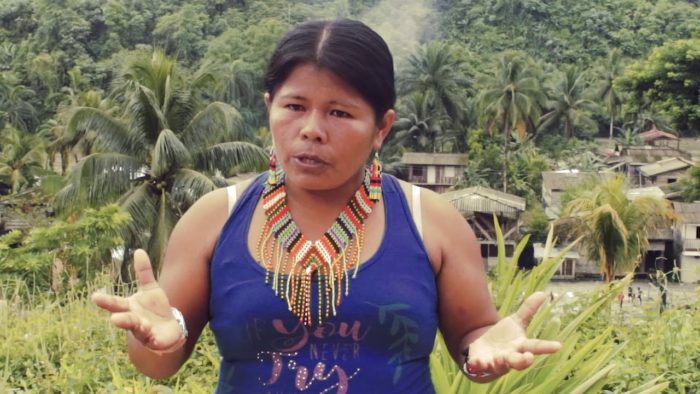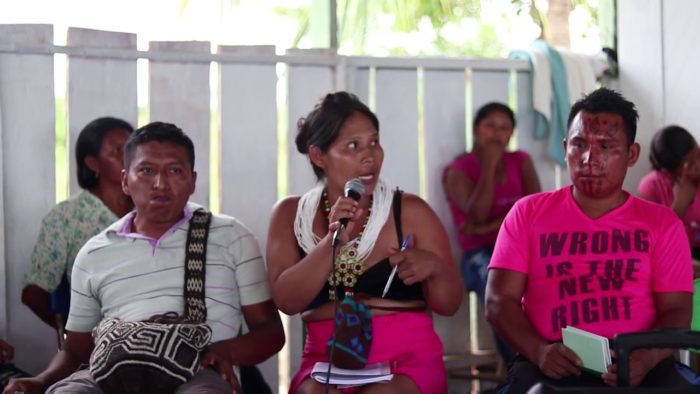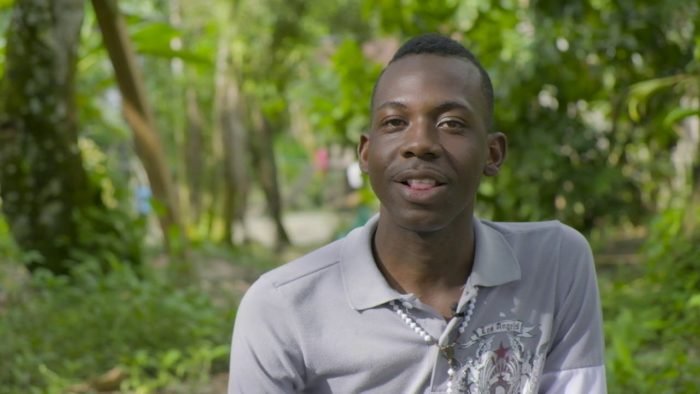Christian Aid and its partners have been working to tackle violence and build peace in Colombia for more than two decades. Three years ago, shortly after the government of Colombia signed a Peace Agreement with the Revolutionary Armed Forces of Colombia (FARC), Christian Aid’s Research, Evidence and Learning team began to design Ten Years, a long-term study of change.
Ten Years is asking how the lives of people in Afro-Colombian and Indigenous communities in the Valle del Cauca are changing in the context of the Peace Agreement, and how they understand peace and justice. Human rights NGO the Inter-Church Commission for Justice and Peace (CIJP) uses video to document the perspectives and analysis of community members, making films that form part of its living archive and human rights defence work.
Click on an image to watch the video.
But as well as learning about change in the Valle del Cauca, Ten Years has also given staff from Christian Aid Colombia and CIJP the opportunity to discuss together how the Peace Agreement is working in practice and how to anticipate and respond to the changes taking place.
Why learn about change?
By supporting work that documents the experiences of marginalised communities in rural Colombia, Ten Years is helping to defend their rights by maintaining their visibility both nationally and internationally.
But the study also helps us to understand the importance of civil society organisations in a time of fragiIe peace and how they, and an international NGO such as Christian Aid, need to adapt as the political context changes This understanding is crucial to ensure that that they can continue to protect the human rights of the marginalised communities they work with.
Reflecting on the first three years
Two earlier posts on the Latin America Bureau blog – here and here – have already drawn on the outputs of our study to share Indigenous and Afro-Colombian views of social change.
Over the coming weeks, we’ll be inviting LAB readers to share more of our reflections on different aspects of the first three years of the study.
- First, we’ll say more about the design of Ten Years in Colombia – what it set out to do, its wider background as part of a wider three-country study in Christian Aid and some of the dilemmas and challenges we have encountered along the way. Watch the video at the head of this article.
- Then we’ll move on to a discussion of how CIJP adapted their theory of change as the landscape of the Peace Agreement altered between 2016 and 2018
- Finally, we’ll share some reflections from the staff of Christian Aid Colombia which give an INGO-eye view of how programming adapts alongside national peacebuilding policy.
We hope that sharing this learning from Ten Years will support the ongoing efforts of all those involved to support peacebuilding in Colombia, and contribute to strengthening and maintaining the international solidarity that remains such an important aspect of working for peace.







